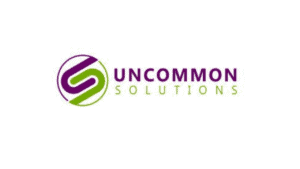What’s the difference?
When it comes to sales, there are two key terms that are often used interchangeably: assertiveness and aggressiveness. However, these two qualities are actually quite different. Assertiveness often gets a bad rep, but contrary to popular belief, being assertive is not synonymous with being aggressive. In fact, assertiveness is a critical skill for any sales professional that wants to be ultra-successful in their role.
So, what exactly is the difference between assertiveness and aggressiveness? Are you assertive, or are you aggressive in your sales approach? In this blog post, we’ll tell you what’s what and help you determine which sales style is most effective. Let’s dig in.
The definition of assertiveness and aggressiveness in sales
While often used interchangeably, assertiveness and aggressiveness actually have two very different definitions. When it comes to sales, both qualities are essential. However, you want to ensure you’re using them correctly.
Assertiveness in sales
Assertiveness, by definition, is when you are disposed or characterized by bold and confident statements or behavior done out of respect and caring. Assertiveness in sales is key because it allows you to confidently use your selling skills to discover a good mutual fit between your prospect and your product or service without being pushy or “salesy.”
Aggressiveness in sales
Aggressiveness, by definition, is a forceful action or procedure (such as an unprovoked attack), especially when intended to dominate or master. When client or prospect facing, you don’t want to come across as desperate, hostile, or inflexible, especially when it is caused by frustration. This will turn people away, disrupt any progress you’ve made so far, and hurt trust. The area where aggressiveness in sales is important would be with your internal sales process, so it’s crucial to channel any aggressive behavior the right way.
The benefits of being assertive in sales
If you’re in sales, being assertive can be a valuable asset — it can help you close deals and build relationships with customers. Being assertive means being confident and straightforward in your communication, knowing what you want, having the confidence to ask what your prospect wants, and going after it. When you’re assertive with prospects and customers, you’re more likely to get a win/win out of a negotiation and have a higher probability of building trust and finding common ground.
Being assertive doesn’t mean being overtly rude or dominant in a conversation, which many people mistake the word for. It simply means being clear about what you want and why it’s important. Assertiveness can help you close more deals and build better relationships with customers and is a highly effective skill that every salesperson should learn to use.
How to be more assertive in sales conversations
If you’re not naturally assertive, don’t worry — it’s a skill that can be learned. If you want to be more assertive in sales conversations, here are a few tips:
- Be clear about what you want. Before you enter a sales conversation, take some time to do a pre-call planning exercise to think about what you want to achieve. What is the purpose of your conversation? What do you hope to accomplish, and what is your desired outcome? Once you know what you want, you can be more assertive in asking for it.
- Be confident. Confidence is key when it comes to being assertive. If you don’t believe in yourself, it’ll be difficult for others to believe in you and want to spend their hard-earned money with you. You are confident in your ability to execute your sales process well. You understand the psychology of buyers and why people buy. You’re confident in your ability to ask qualifying questions to ensure a mutual fit and not waste time. That confidence goes a long way.
- Be prepared. Anticipate the questions your prospect may ask you and be prepared to provide an appropriate response.
- Be respectful. Respect is important in any relationship, including your relationships with your customers. Respect your time and theirs. Never end a meeting without getting one of these three outcomes, a yes, a no, or a commitment to a next step.
Enjoying this article and want to stay in touch with the Topaz Sales Consulting team? Subscribe to our quarterly newsletter to hear major updates in the sales and sales hiring industries.
How to avoid crossing the line into aggressiveness
While being assertive can be advantageous to a salesperson, it’s important to avoid crossing the line into aggressiveness. If you’re too aggressive, you’ll come across as disrespectful, damaging your relationships with customers. Take an aggressive approach to your sales process (making lots of calls, following up regularly, finding clever ways to outreach or negotiate, etc.) but don’t take an aggressive angle when speaking to your customers. They won’t really appreciate it.
Here are a few tips for avoiding aggressiveness
- Be aware of your body language. Your body language can say a lot about how you’re feeling. If you’re feeling aggressive, your body language will reflect that. Be aware of your posture, facial expressions, and tone of voice. If you’re coming across as aggressive, adjust your body language accordingly and soften up around the edges. Try to match your customer’s body language to make them feel at ease.
- Listen to your customer. One of the best ways to avoid being too aggressive is to actively listen to your customer. Not only what they’re saying but, more importantly, how they’re saying it through tonality and body language. Ask your customer these questions: What pain are they trying to make go away? What do they need? If you’re not sure, keep asking questions to clarify.
- Be flexible. In any sales conversation, it’s important to be flexible because things may not always play out the way you want them to. This is accomplished by not being outcome based. When a sales call or follow-up meeting doesn’t go as planned, it’s important not to be too rigid in your approach. Be prepared to adjust your strategy based on your customer’s needs to avoid coming across as caught off-guard or aggressive/defensive in your response. Be willing to go wherever the truth takes you.
Assertiveness and aggressiveness are two qualities any salesperson should understand, and knowing the difference between the two is essential for success. Use assertiveness when you want to build relationships and trust with your customers, but be careful not to cross the line into aggressiveness, which can damage your relationships. With these tips in mind, you can be more assertive and successful in your sales career.







